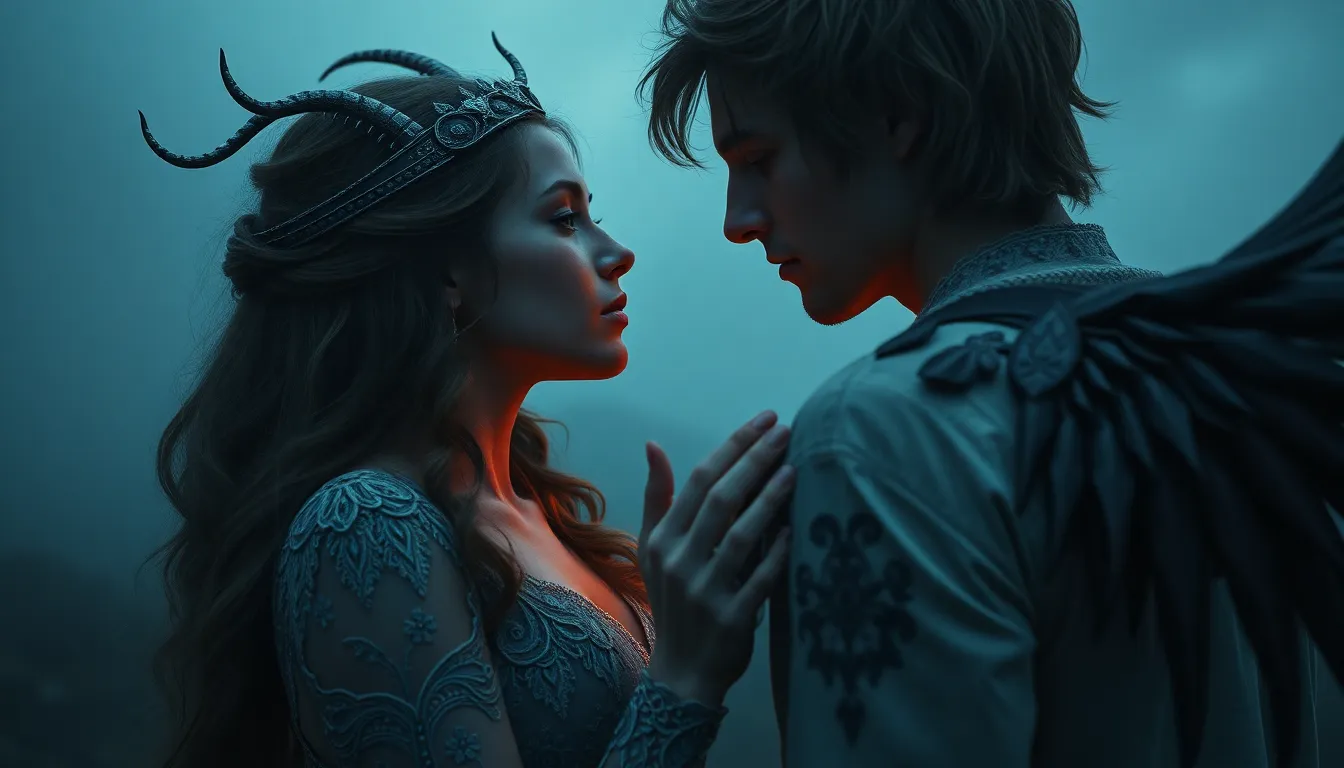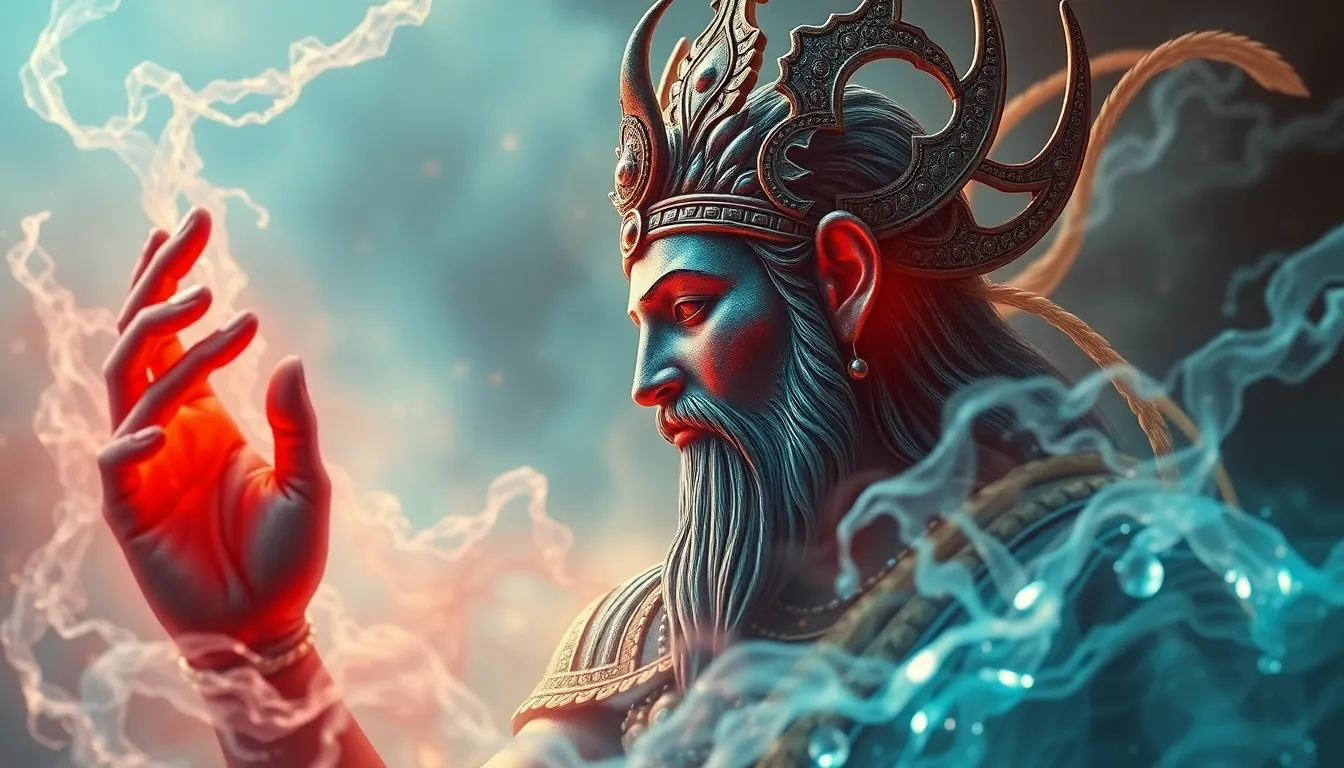Mythical Love Stories That Challenge the Norms of Romance
Introduction: The Intersection of Myth and Romance
Throughout history, mythical love stories have captured the hearts and imaginations of people across cultures. From the ancient tales of Greek gods to the romantic epics of Eastern traditions, these narratives not only entertain but also reflect and shape societal norms regarding love and relationships. Myths serve as a lens through which we can explore the complexities of human emotions, desires, and the very nature of love itself.
The Power of Myth: Understanding Love Through a Cultural Lens
A myth can be defined as a traditional story, often involving supernatural beings or events, that serves to explain a culture’s beliefs and values. Myths about love are particularly significant as they provide insight into how different societies understand and approach relationships. They often reflect prevailing attitudes about love, marriage, and partnership, while also challenging these norms in unexpected ways.
By examining these myths, we can uncover deeper meanings and questions about love:
- What does it mean to love unconditionally?
- How do societal expectations shape our romantic choices?
- In what ways can love transcend cultural boundaries?
Classic Mythical Love Stories That Defy Expectations
Some of the most renowned mythical love stories challenge traditional romantic narratives. For instance:
- Orpheus and Eurydice: This tragic love story tells of Orpheus, a gifted musician, who ventures into the Underworld to retrieve his beloved Eurydice. His failure to adhere to the conditions set by Hades reveals the fragility of love and the consequences of trust.
- Pygmalion and Galatea: Pygmalion, a sculptor, falls in love with a statue he created. When the goddess Aphrodite brings the statue to life, it raises questions about idealized love and the boundaries between creator and creation.
These stories diverge from conventional romantic narratives by emphasizing themes of loss, idealization, and the complexities inherent in love itself. Rather than presenting love as a straightforward journey, they highlight the struggles and sacrifices that often accompany deep affection.
Interpreting Forbidden Love: Tales of Star-Crossed Lovers
The theme of forbidden love resonates across cultures, with stories like Romeo and Juliet serving as prime examples. This tale of two young lovers from feuding families illustrates the societal challenges that can hinder love. Similarly, the myth of Tristan and Isolde depicts a romance fraught with obstacles, including loyalty and duty.
These narratives reveal:
- The societal pressures that dictate who we can love.
- The tragic consequences of love that defies social norms.
- The enduring hope that love can triumph, despite the odds.
Such stories encourage contemporary audiences to reconsider the meaning of love in the face of societal expectations and personal desires.
Divine Intervention: Love Stories of Gods and Mortals
Myths often feature love stories between divine beings and mortals, showcasing the complexities of power dynamics in relationships. For example, in the tale of Cupid and Psyche, Psyche’s love for Cupid is tested by challenges set forth by Venus, highlighting themes of jealousy and trust. Similarly, the story of Zeus and Europa explores themes of desire and consent, as Zeus transforms into a bull to abduct Europa.
These narratives complicate the understanding of love by introducing elements of manipulation and power imbalance, prompting readers to reflect on the nature of relationships in their own lives.
The Role of Gender and Sexuality in Mythical Love
Gender roles play a significant part in many mythical love stories. For instance, the bond between Achilles and Patroclus is often interpreted through different lenses, reflecting varying attitudes towards masculinity and love. In some cultures, this relationship is celebrated as a deep friendship, while in others, it is viewed as a romantic connection.
Myths challenge or reinforce contemporary views on sexuality through:
- Exploring non-heteronormative relationships.
- Questioning traditional gender roles and expectations.
- Highlighting the fluidity of love and attraction.
Reimagining Love: Modern Adaptations of Mythical Stories
Contemporary literature and media have sought to reinterpret classic myths, breathing new life into these ancient tales. For example, Madeline Miller’s “Circe” offers a feminist perspective on the story of the witch Circe, challenging traditional narratives by giving her agency and depth.
Such adaptations impact current understandings of love and relationships by:
- Highlighting the voices of marginalized characters.
- Encouraging readers to question established narratives.
- Celebrating the complexity and diversity of love.
Lessons from Mythical Love Stories: What They Teach Us About Romance Today
The rich tapestry of mythical love stories teaches us valuable lessons about the nature of romance:
- Love is often complicated and fraught with challenges.
- Personal sacrifice and commitment are vital in nurturing relationships.
- Understanding and acceptance can lead to deeper connections.
These lessons encourage a broader understanding of romance that transcends conventional norms and embraces the complexities inherent in love.
The Influence of Myth on Modern Relationship Dynamics
Myths continue to influence contemporary relationship ideals, shaping our expectations and desires. They provide frameworks for understanding love across cultures, addressing issues such as:
- Cross-cultural relationships and their challenges.
- The evolving definitions of LGBTQ+ love.
- Non-traditional partnerships that defy societal expectations.
By reflecting on these narratives, we can gain insight into the dynamics of modern relationships and the ways in which they can be enriched by understanding historical contexts.
Conclusion: Embracing the Mythical in Our Own Love Stories
The enduring power of myths in shaping our understanding of love is undeniable. By exploring mythical love stories, we can uncover complex truths about desire, commitment, and the human experience. As we navigate our own romantic journeys, embracing the lessons and insights from these timeless tales can help us forge deeper connections and challenge the norms that govern our lives.




